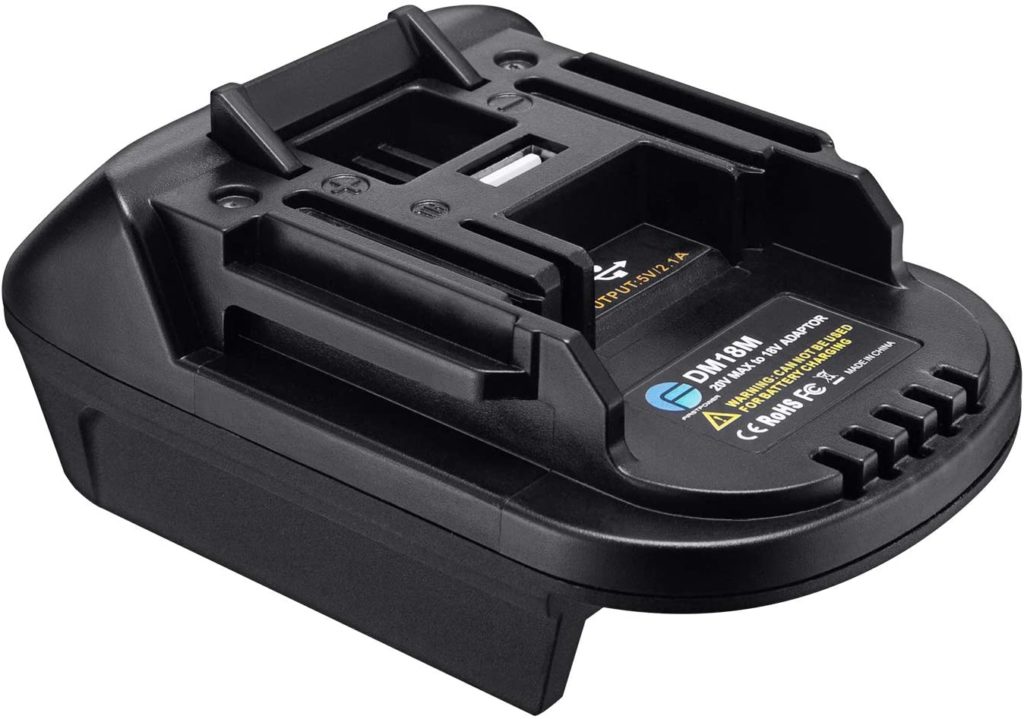Ryobi and Makita are two of the most popular brands of power tools in the world. One question that often comes up among consumers is whether Ryobi and Makita batteries are interchangeable. In this article, we will take a comprehensive look at both Ryobi and Makita batteries, discussing their specs and why it’s not wise to substitute one for the other.
Ryobi Brand vs. Makita Brand
Ryobi is a Japanese company that specializes in power tools, outdoor equipment, and electronics. Founded in 1943, it has since grown to become one of the world’s largest manufacturers of power tools. Ryobi currently offers a wide variety of power tools for professional and consumer use.
Makita is another Japanese company that specializes in power tools. Makita was founded in 1915 and is one of the oldest and most well-known power tool brands globally. Makita also offers a wide variety of professional-grade power tools for commercial and consumer use.
Can You Interchange Ryobi Batteries and Makita Batteries?
Even if two brand batteries are the same voltage and theoretically can be interchanged, each power tool brand makes it virtually impossible for you to use another brand battery by creating a different shape outlet for their tools and batteries.
Although there are adapters that allow you to interchange Ryobi and Makita batteries, it’s important always to use the correct type of battery for your power tool to prevent any accidents from happening. Just remember that each brand has its own warranty. If your tools are damaged while using improper batteries, you may void your warranty coverage.
Are Different Types of Batteries Interchangeable?
Different types of batteries are not interchangeable if they use different voltages. Another reason you can’t interchange batteries is because they react to different chemicals. Forcing a lithium-ion battery onto a nickel-cadmium power tool and vice versa can cause damage to the power tool. In some cases, it can also cause a fire.
Alternate Ways to Save on Batteries
If you are a frequent power tool user, here are several ways to save on power tools and batteries:
Invest In Battery Packs
Buying in bulk can save you a lot of money in the long run. You can also look for sales and discounts, especially around the holiday season. In addition, the Home Depot and Amazon frequently run 18-volt battery pack specials for both Ryobi and Makita.
Invest in Battery Chargers
Another way to save on batteries is to invest in good battery chargers. A good charger can prolong the life of your battery and help you get more use out of it before needing to replace it.
Buy Same-Brand Tools to Easily Change Batteries
If you want to save on batteries, it is worth buying all your power tools from the same brand. That way, you can interchange batteries between your tools and never worry about compatibility issues. Another great advantage to compatible power tool batteries is that you have less clutter since you only need to keep one type of battery on hand.
What Are Lithium-Ion Batteries?
Lithium-ion batteries are rechargeable batteries with lithium atoms in their negative electrode. These lithium atoms store electrons released during discharge to create an electric current. Lithium-ion batteries are lightweight, have a high energy density, and are rechargeable.
Uses of Lithium-Ion Batteries
These batteries are used in laptops, cellphones, electric vehicles, and other portable electronics. They have a higher energy density, which means they can store more energy in a given volume. They are also lighter in weight than some other types of batteries, making them ideal for use in portable electronics.
What Are Nickel-Cadmium Batteries?
Nickel-cadmium batteries are rechargeable batteries that use nickel oxide hydroxide and cadmium as electrodes. The NiCd batteries are popular because they have a high energy density, meaning they can store more energy per unit of weight than other batteries. They also have a long life cycle and can be recharged hundreds of times without losing capacity.
However, nickel-cadmium batteries are also one of the most environmentally damaging types of batteries because of the toxic metals they contain. If disposed of improperly, NiCd batteries can leak these metals into the soil and water, causing harm to plants and animals.
Uses of Nickel-Cadmium Batteries
Nickel-cadmium batteries are used in various applications, including power tools, cordless phones, and two-way radios. They are also used in some electric vehicles and backup power systems. Older portable electronics such as laptops and cellphones may also use nickel-cadmium batteries.
What Are Lead-Acid Batteries?
Lead-acid batteries are the oldest type of rechargeable battery on the market. They work by using lead and lead dioxide electrodes, with sulfuric acid as the electrolyte. The chemical reaction between lead and lead dioxide produces electrical energy. This energy is then used to start the engine or power the lights.
Lead-acid batteries are the cheapest to produce. Even though they are also much heavier, these batteries have a lower energy density and tend to have a very long life span. But just like nickel-cadmium batteries, lead-acid batteries can release harmful lead fumes if they are not properly maintained.
Uses of Lead-Acid Batteries
Lead-acid batteries are widely used in powering heavy-energy-consuming machinery such as cars, golf carts, and forklifts. They are also used in backup power systems and solar energy storage systems.
Final Thoughts
We hope you found this article helpful in understanding why interchanging Ryobi and Makita batteries, while possible, is not a great idea. Buying in bulk, investing in a good battery charger, and using the same brand for all your power tools are better ways to save money.
